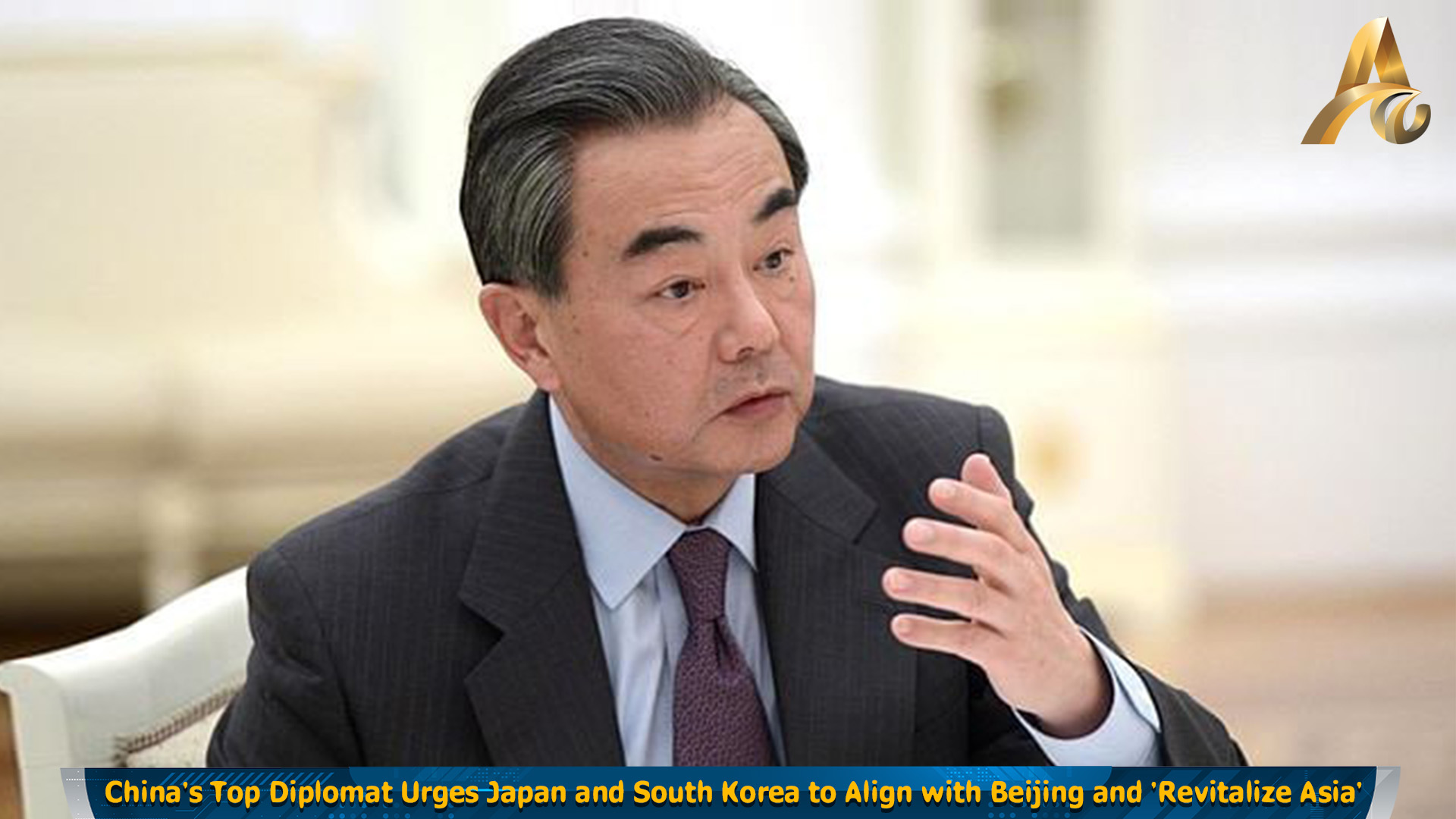
China's Top Diplomat Urges Japan and South Korea to Align with Beijing and 'Revitalize Asia'
INTERNATIONAL: China's top diplomat, Wang Yi, has called on Japan and South Korea to cultivate a sense of "strategic autonomy" from the West and collaborate with Beijing to "revitalize Asia" amid escalating tensions between China and its neighboring American allies. “You can never become a westerner”
Speaking on Monday, Wang's remarks come as Japan and South Korea strengthen their ties with the United States and work towards resolving their own differences, driven by shared concerns about China's increasing influence and assertiveness in the region.
In a video shared by Chinese state media, Wang addressed Japanese and South Korean guests attending a trilateral forum in Qingdao, emphasizing that many Americans and Europeans struggle to differentiate between China, Japan, and South Korea. He stressed that, regardless of attempts to imitate Western attributes, individuals cannot transform themselves into Europeans or Americans and must recognize their own cultural roots.
Wang called for Japan and South Korea to collaborate with China in order to achieve shared prosperity, revitalize East Asia, revitalize Asia as a whole, and bring benefits to the world.
Wang made these statements on the sidelines of the International Forum for Trilateral Cooperation, an annual event organized by Beijing, Tokyo, and Seoul since 2011. The Chinese Foreign Ministry stated that Wang's address during the forum's opening ceremony was intended to send a clear signal about the potential for regrouping among the three neighboring nations.
During his opening remarks, Wang urged Japan and South Korea to promote inclusive Asian values, foster a sense of strategic autonomy, maintain regional unity and stability resist the return of Cold War mentalities, and reject coercion, bullying, and hegemony, as stated in the ministry's statement.
"The fate of the region is firmly in our own hands," Wang was quoted as saying.
Chinese President Xi Jinping, the country's most powerful leader in decades, has pursued an assertive foreign policy aimed at expanding Beijing's role on the world stage. This approach has led to tensions with neighboring countries and the West.
In recent years, the Biden administration has intensified efforts to unite allies and like-minded partners to counter China's growing influence in the Pacific, including strengthening ties with South Korea and Japan, two crucial allies in Asia.
The trilateral relationship between these nations is further strengthened by shared security concerns regarding North Korea. The three countries have conducted joint military drills this year to enhance coordination in response to increasing North Korean missile threats.
They have also issued joint statements on tensions in the Taiwan Strait, an area deemed vital to the respective security of Tokyo and Seoul, which has drawn criticism from Beijing.
In a veiled critique aimed at the United States, Wang accused "certain major powers outside the region" of exaggerating ideological differences to incite confrontation and division for their own geopolitical gains, according to the Chinese Foreign Ministry.
Wang warned that allowing this trend to continue would not only disrupt the smooth progress of trilateral cooperation but also escalate tension and confrontation in the region.
According to the Chinese Foreign Ministry, South Korean Foreign Minister Park Jin and Japanese Foreign Minister Yoshimasa Hayashi addressed the event via video link.






















